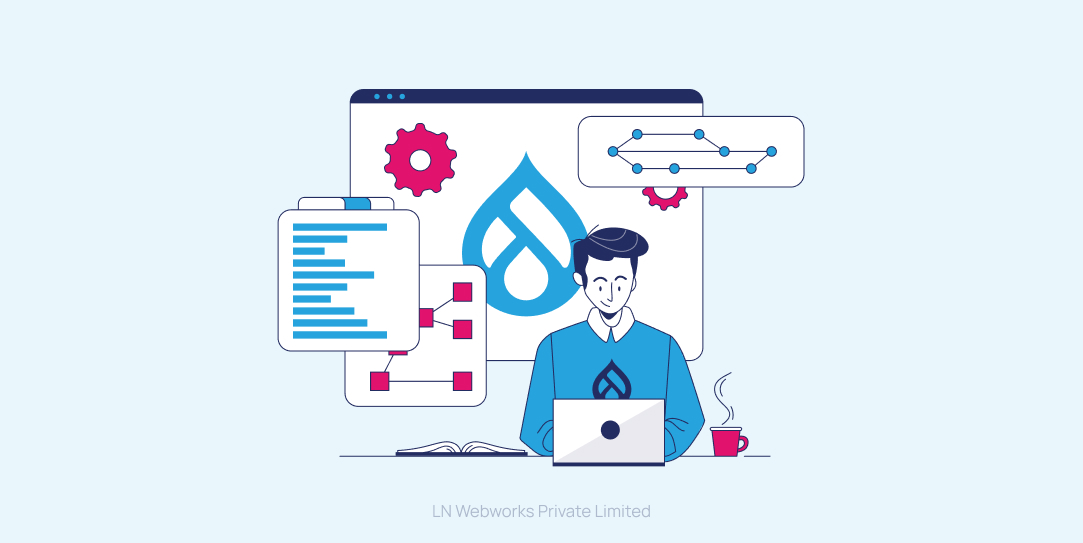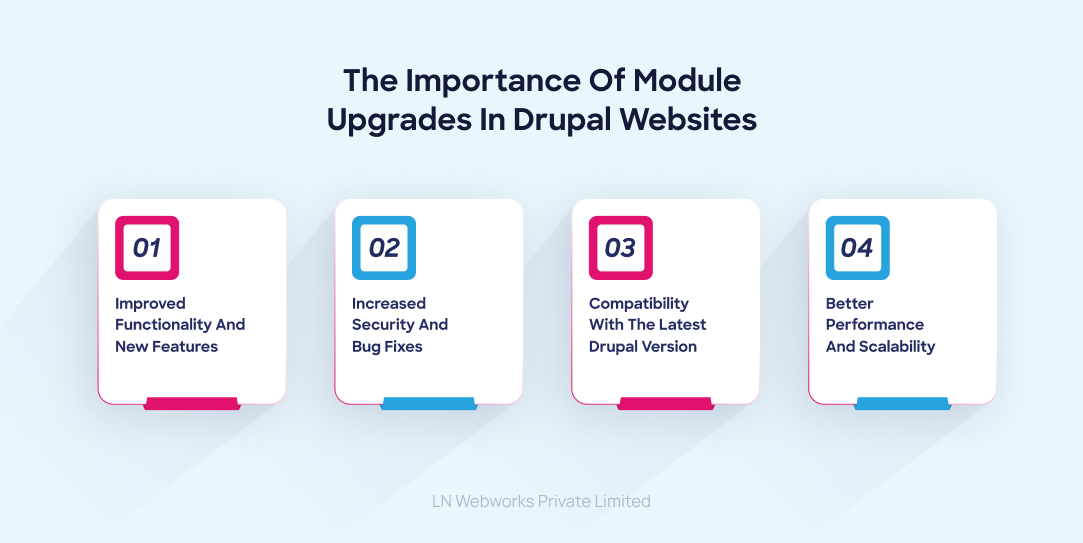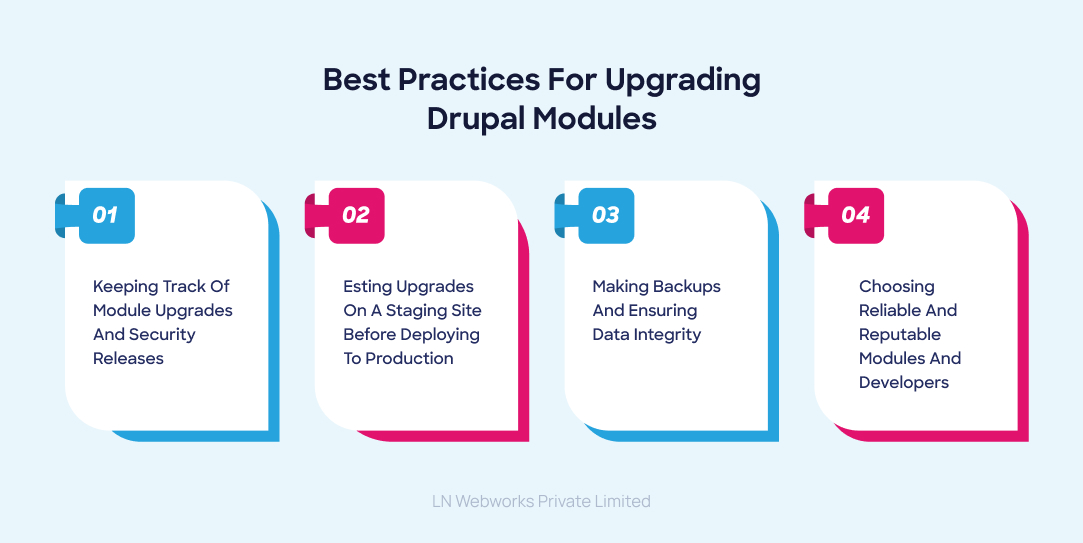Upgrading Modules on Your Drupal Site: Key Considerations and Practices for Optimal Results

As a website owner/admin, you may be tempted to put off Drupal module upgrades for your website. And as a provider of Drupal Support and Maintenance Services, we understand you. Who has the time to keep up with the latest modules and updates when everything seems to be running smoothly anyway? This may be a hard pill to swallow–failing to upgrade your modules can lead to severe consequences, such as security vulnerabilities, outdated functionality, and poor performance
The article will teach you why it’s important to upgrade modules regularly and give you some best practices to keep your Drupal website secure, reliable, and high-performing.
The importance of module upgrades in Drupal websites
Simply building a website on Drupal isn’t enough. Regular Drupal module upgrades are necessary to ensure your site runs optimally. Here are the top four importance of upgrading modules in your website:

- Improved functionality and new features
Module upgrades will help you to extend the site’s capabilities, improve user experience, and provide new features that weren’t available before. It will also provide new tools for managing user accounts, such as creating custom roles or restricting access to certain pages or content types. - Increased security and bug fixes
Drupal modules upgrades will fix known bugs and security issues and improve site functionality without compromising the website’s integrity. Additionally, they can prevent the site from vulnerabilities ranging from minor glitches to significant errors and improve the website’s credibility, improve user engagement, and increase user traffic efficiently. - Compatibility with the latest Drupal version
As Drupal evolves and new features are added, upgrading modules ensures your website is future-proofed. The Drupal community will provide thorough Drupal 9 documentation and resources for all versions to keep your modules up-to-date and compatible with the current version.
Documentation for reference: https://www.drupal.org/docs - Better performance and scalability
Upgrading the Drupal module will help improve your website’s performance by optimizing code, reducing memory usage, and improving database queries. Furthermore, it provides various tools and techniques such as caching, Content Delivery Networks (CDN), load balancing, and many others to improve performance and scalability.
Best practices for upgrading Drupal modules
Whether running an E-commerce store or a non-profit website, having a quality website is essential for success. Keeping your website modules current is an essential aspect of website quality, and these four best practices can help you succeed:

- Keeping track of module upgrades and security releases
Website administrators must monitor the available upgrades for modules installed on your website. Drupal provides an “Update Manager” module to check for updates for Drupal core, contributed modules, or themes. Security releases are issued if a known vulnerability in the module needs to be patched. When that happens, Drupal announces on its official website and provides instructions to fix the vulnerability. - Testing upgrades on a staging site before deploying to production
A staging Drupal website is a separate copy of the production site used to test new features, functionality, and module upgrades. Doing this will help you avoid module-related problems or conflicts and ensure all modules function smoothly. Suppose website admins find any issues during this phase. In that case, it’s easier to troubleshoot and fix them by debugging the code and adjusting configurations. - Making backups and ensuring data integrity
Before upgrading your Drupal module, create a backup of the entire site. This lets website administrators go back to the way the site was before if anything goes wrong during the upgrade. Drupal also provides several backup modules, such as Backup and Migrate, Drush, and Drupal Console. After this, you can verify the data integrity to ensure it’s complete and accurate by comparing the backup file with the live site. While in the process, you can test the functionality, identify errors or anomalies, and verify the database schema. - Choosing reliable and reputable modules and developers
Don’t rush into upgrading your Drupal modules without first selecting trustworthy developers and reliable modules. You should also check for the module’s compatibility with the site’s version of Drupal and any other modules you may have installed. Look at the developers’ reputation, experience, and credentials when installing Drupal modules. Moreover, reliable modules and developers reduce the risk of security vulnerabilities, module conflicts, and other issues.
Conclusion
Drupal module upgrades may seem like a tedious task, but it’s an essential element of maintaining a successful online presence. Technology is evolving rapidly, and failing to keep up with the latest Drupal modules can quickly lead to a suboptimal web experience for your users. At LN Webworks, we specialize in Drupal web development services and can help you stay on top of module upgrades to help your business grow in this digital world. Take the first step towards building a quality Drupal website, and contact us today to schedule a consultation.
We’ll help you succeed!
